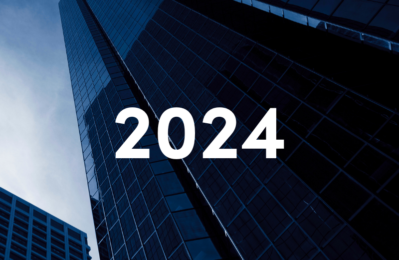Members of Generation Z are currently entering the labour market. If companies want to attract and retain the brightest among them, they will need new, radically different strategies.
“They’re like, ‘Nah, I’m not feeling it today, I’m gonna come in at 10:30 a.m.,’” actress and director Jodie Foster described her younger colleagues. In an interview with the Guardian, she described Gen Zers as “really annoying, especially in the workplace.” Similar intergenerational conflicts in the current job market are quite common. This year, as many as 60% of companies admitted that they have laid off employees from Generation Z.
However, the causes of this phenomenon do not stem from stereotypes about their laziness, difficulty or immaturity. There is growing evidence that young people perceive that their careers and quality of life are affected by various workplace dynamics that their older colleagues have helped to normalise. For example, younger generations are more likely to suffer from depression, significant financial problems and are dissatisfied with their jobs.
In a viral video, TikToker Robbie Scott laid out exactly why Gen Zers might be putting in less work than their parents did: “We need to stop expecting the same people who bought a four-bedroom home and a brand-new Cadillac convertible off of a $30,000-a-year salary to understand what it’s like to be working 40-plus hours a week with a master’s degree and still not being able to afford a 400-square-foot studio apartment in Iowa,” Scott said in his video.
According to research by the London School of Economics and Protiviti, friction in the workplace is consequently contributing to an enormous disparity in the productivity levels of executives and their teams, and it was by far the worst for Gen Z and millennial workers. With Generation Z currently making up more than a third of the world’s population and soon to become the world’s largest, it’s important to understand why they have such a unique perspective on career and success. It is already certain to cause rapid changes in industries and companies.

Most educated and most indebted
Generation Z people remember the Great Recession and how their parents lost their jobs and their older millennial siblings had to move back home. They perceived growing economic gaps in society that continue to widen exponentially. Moreover, housing, transportation, food, and health care costs are also rising. In addition, the dramatic increase in college tuition fees and student debt has made this generation the most educated and the most indebted to date.
Deloitte and the Network of Executive Women have pointed out that the previously mentioned factors have shaped Generation Z’s behaviour and their perceptions of work and the future. Furthermore, this group is entering the workforce at a time when technology and automation have eliminated many manual and repetitive tasks.
As changes in the labour market and a shrinking workforce will cause fierce competition for talent, companies that want to win need to think differently. Although salary is the most important factor in job decisions, if Generation Z had to choose between a better-paying but boring job and a more interesting job that pays less, its preferences would be fairly even. Firms should, therefore, consider the attractiveness of the industry in which they operate and their reputation when planning their strategy.
Empathy as a work trend
Generation Z is also known for rejecting traditional work cultures that emphasize long hours, constant availability and immersion in work. Another Deloitte report from 2023 found that 50% of Generation Z respondents ranked “work-life balance” as one of their top priorities when considering employment. This group is less tolerant of toxic workplace environments and quicker to leave a position that doesn’t meet their expectations. Flexible working hours, benefits, perks, and a belief that the company cares about the world around them, including its team, are also important to them.
As the younger generation perceives instability in the job market and brands that exploit everything to their advantage, what older groups perceive as a lack of motivation may be a form of self-preservation. However, their shift in priorities can be uncomfortable for other people and companies who expect their teams to go above and beyond. The fact that Generation Z encounters outdated work systems and an inability to adapt to modern needs is a common reason why they lose their jobs.
However, if companies respect their desire for balance, they can reduce both burnout and turnover rates while increasing the motivation of their people. A focus on mental health often fosters a more empathetic and supportive workplace culture, and that’s a win-win for everyone. Companies have been encouraged to implement hybrid working, flexible working hours or wellness initiatives. This shouldn’t mean lowering standards but creating an environment where teams can thrive while maintaining mental health.

The IT sector is losing Generation Z women
Gen Z employees value collaboration but don’t want to be micromanaged. Management can often notice that once they understand its expectations, they prefer autonomy. Moreover, if they have communication channels that provide feedback and support, they are satisfied.
Having grown up with smartphones, social media and the internet at their fingertips, they are very skilled at using new technologies. With as many as 51% of respondents wanting to work in the IT industry, management is advised to put them in charge of technology initiatives. Whether it’s a pilot deployment of new software or improving social media strategy, it is worth listening to their suggestions on how to streamline processes or increase the engagement of online audiences.
Gen Z women, however, are far less likely than men to be looking for technology jobs. With every industry facing labour shortages, this trend could cause problems for many companies. If they want to achieve greater gender diversity, they will have to go through changes and find ways to attract more women. One possible solution could be to work with female students, starting at the university level.
Company ethics calls the shots
Members of Generation Z are much more likely to prioritize social activism. 77% of them said it was important for them to be involved in organisations whose values are in line with their own. Rather than traditional indicators of success, such as salary or job title, it is more important for them to feel that their work contributes to something bigger. They also form opinions about companies based on their ethics, practices and their impact on societal challenges such as sustainability, climate change and hunger.
If employers want to win over Gen Z, they will need to emphasise their ethical values and align them with their operations. The good news is that purpose-driven employees tend to be more engaged and productive. Aligning business goals with ethical values can also improve a brand’s reputation, helping it attract both socially conscious customers and top talent. Companies can also offer young people the opportunity to get involved in corporate social responsibility (CSR) initiatives or volunteering projects.
Other factors that young adults consider when making career decisions are the level of inclusion and diversity in the team. Generation Z is the most ethnically and racially diverse in history. Its views on gender, orientation and identity are unprecedented and unconventional, refusing to be pigeonholed. Companies that can better represent the spectrum of differences in their external marketing have a much better chance of succeeding. Moreover, changing culture and increasing inclusion in the workplace is something that can benefit all generations.
Studies show that diverse teams perform better and are more creative in solving complex problems. As a result, Generation Z’s drive for inclusion can help build a stronger and more resilient company culture. Forbes suggests that companies should engage young people in conversations about workplace policies and be transparent about how they plan to address diversity, equality and inclusion issues.

Jobs are being tailored to applicants
The future of work calls for the return of the Renaissance figure: a person with many talents, interests and areas of expertise. They should have skills in technology, analytics and data, business management and design. They are also expected to be creative. Generation Z is keeping up with the changing times and likewise wants to possess a variety of specialisations. Unlike millennials, who are more startup-oriented, this group prefers a career that will consist of a combination of diverse entrepreneurial opportunities and the security of a stable job.
Companies, therefore, need to fundamentally change the way they recruit, retain and develop their talent. Deloitte recommends that they create a great employee profile, introduce in-house internships, or hire talented people who are assigned a role after they join the organisation based on their skills. This allows Generation Z to change the “balance of power” between the company and staff who previously had to adapt to the job.
The very social contract between the employer and its workforce has also changed dramatically. Organisations now have a range of options available to them to find talent – from hiring people full-time to using managed services and outsourcing, independent contractors, part-timers to crowdsourcing.
What kind of evaluation has TITANS received from Generation Z?
At our company, we believe that when young people are given the opportunity for career growth and recognition for their achievements, they bring innovation and success to the business. It is our pleasure to nurture talents who don’t have much experience in their field yet are brimming with a willingness to learn, take on challenges and follow their ambitions.
That’s why we’ve been ranked in the prestigious list of Most Popular Workplaces® for Young Professionals 2024 – and with a full star rating, too! We consider this not only an honour but also a commitment to continue to create a supportive environment in which our young colleagues can kick-start their careers. At the same time, we want to congratulate the other brands that made it onto the list and are setting an example for companies in their industry.

Titans that have
joined us

Clients that have
joined us

Succcessfully supplied
man-days






